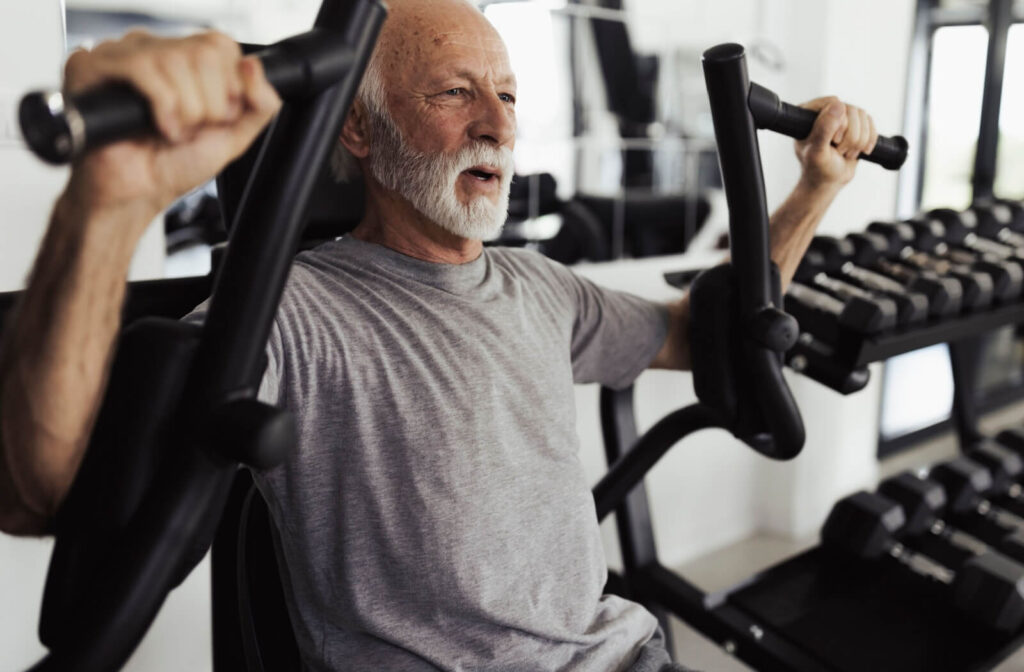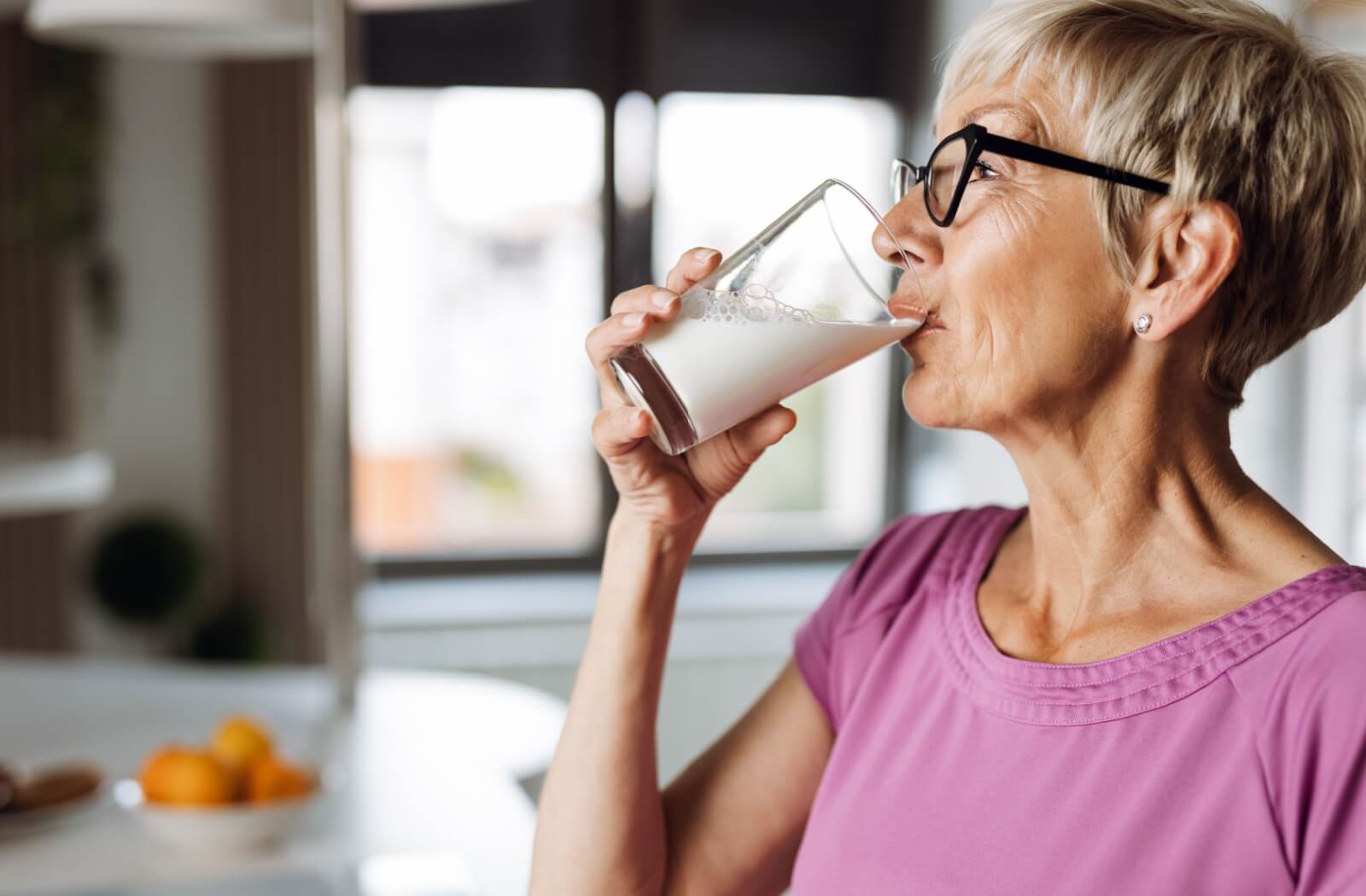As we grow older, our bones naturally become more fragile—but that doesn’t mean we’re powerless. Maintaining strong bones is essential for staying mobile, independent, and injury-free throughout the aging process.
The good news? A few healthy, consistent habits can go a long way in supporting bone health for years to come.
Prioritizing calcium and vitamin D, staying physically active, building healthy habits, being aware of medication side effects, and speaking to your doctor about bone density screenings are all proactive steps that can help maintain strong, resilient bones as you age.
Why Bone Health Matters in Older Adulthood
Bones are living tissue that continuously breaks down and rebuilds—a process known as remodeling. In our younger years, we produce bone faster than it breaks down, resulting in higher bone mass.
But after age 40, that balance shifts, and bone density starts to decline.
For some older adults, this gradual loss leads to osteoporosis, a condition in which bones become brittle and prone to fractures. Osteoporosis is more common among older women but can affect men as well.
Being proactive about your bone health can help prevent injury, maintain good posture and balance, and support a more active, independent lifestyle.
Prioritize Calcium Every Day
Getting enough calcium is one of the most important steps you can take to keep your bones strong.
Why Calcium Matters
Calcium is the foundation of strong bones. About 99% of your body’s calcium is stored in your bones and teeth.
Daily calcium recommendations:
- 1,000 mg/day for adults ages 19–50
- 1,200 mg/day for women over 50 & men over 70
Key Sources of Calcium
A balanced diet can provide key sources of calcium, including:
- Dairy products like milk, yogurt, & cheese
- Leafy greens like kale & collard greens
- Fortified plant-based milk & cereals
- Canned salmon or sardines with bones
- Tofu made with calcium sulfate
If you’re not getting enough calcium through food alone, consult your healthcare provider about whether a supplement might be helpful.
Make Vitamin D Part of Your Daily Routine
Vitamin D is vital in helping your body absorb and use calcium properly.
The Role of Vitamin D in Bone Health
Even if you consume enough calcium, low vitamin D levels can limit its benefits as your body won’t absorb it.
Recommended daily intake:
- 600 IU/day for adults under 70
- 800 IU/day for adults over 70
Good Sources of Vitamin D
Dietary and lifestyle sources of vitamin D include:
- Fatty fish like salmon, mackerel, & tuna
- Egg yolks
- Fortified dairy or plant-based milk
- Cereals & juices
- Sensible sun exposure (10–30 minutes weekly)
If you live in a region with limited sunlight—like a stretch of cloudy days in Massachusetts—your doctor may recommend a vitamin D supplement to keep your levels optimal year-round.
Stay Active with Weight-Bearing Exercises
Regular movement strengthens bones and helps reduce the risk of falls and fractures.
How Exercise Supports Bone Density
Exercise isn’t just for your muscles. Your bones also benefit from regular movement. Weight-bearing and resistance exercises can slow bone loss and improve bone density, especially in older adults.
Senior-friendly bone-strengthening activities include:
- Brisk walking or hiking supports cardio health
- Tai chi or yoga improves balance & flexibility
- Stair climbing builds endurance & bone density
- Resistance bands or light weight training for strength
- Dance classes or water aerobics for cardio health
Just 30 minutes of moderate activity daily can help keep bones strong and improve balance, which is key to reducing falls and fractures.

Be Mindful of Lifestyle Choices & Medications
Your daily habits and long-term medications can either support or weaken your bone health.
Habits That Can Weaken Bones
Certain lifestyle habits—especially smoking and heavy alcohol use—are directly linked to decreased bone density. Smoking slows the function of bone-forming cells, while alcohol interferes with calcium absorption.
What you can do:
- Quit smoking or seek support if needed
- Limit alcohol to 1 drink per day for women & 2 for men
These changes not only support bone health but also improve overall wellness.
Medications That May Affect Bone Density
Some long-term medications can impact bone strength, including:
- Corticosteroids
- Certain anti-seizure drugs
- Thyroid medication
- Proton pump inhibitors for acid reflux
If you’re taking any of these regularly, speak with your doctor about how they may impact your bones and whether bone monitoring is necessary.
Talk to Your Doctor About Bone Density Screening
Bone density screening is an essential preventive tool, especially as we age.
What Is a Bone Density Test?
A bone density test, also known as a DEXA scan, measures how strong your bones are and helps detect early signs of osteoporosis.
Who Should Be Screened?
Bone density testing is typically recommended for:
- Women over 65
- Men over 70
- Anyone younger with risk factors
Risk factors affecting bone density include early menopause, low body weight, autoimmune conditions, or a family history of osteoporosis.
The simple, noninvasive test gives your healthcare provider insight into whether lifestyle changes or treatments are needed.
Supporting Bone Health Through Respite Care in Wrentham
Caring for your health doesn’t stop when you or a loved one needs short-term support. At All American Assisted Living at Wrentham, our respite care program is designed to provide the same high-quality attention and wellness focus our long-term residents enjoy.
- Balanced, nutrient-rich meals developed with input from a registered dietitian
- Fitness programs & group classes to encourage movement in a fun, supportive setting
- Personalized care plans to meet individual mobility & health needs
Our team is here to help you feel confident in your body, supported in your wellness goals, and connected to a community that prioritizes independence and quality of life.
Book a tour today to learn how All American Assisted Living at Wrentham helps residents stay strong, active, and empowered every step of the way.






